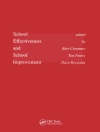Labour Beyond Cosatu is the fourth volume in the series Taking Democracy Seriously – a ground-breaking, textured and nuanced study on workers and democracy – which was established in the 1990s. The series looks at members of trade unions affiliated to the Congress of South African Trade Unions (Cosatu) and provides a rich database of trade union members and research conducted over the past twenty years. It is one of the very few such resources available to researchers anywhere in the world. Labour Beyond Cosatu paints a complex picture. The 12 chapters of the volume explore various rebellions and conflicts in the trade union sector, starting with the National Union of Mineworkers (NUM) and rivalries between Cosatu affiliates. Unpacking the conflicts between state-sector and private-sector workers, contributors look at the impact of generational and educational shifts, seen by some commentators as proof that Cosatu is now ‘middle class’. The book also raises the issue of gender in the unions by usefully locating the controversy around charges levelled at Zwelinzima Vavi in 2013 in the larger context of serious problems in the gender politics within parts of Cosatu. Refuting the image of a union federation solidly committed to the ANC, Labour Beyond Cosatu presents evidence of a sharp decline in support for the ANC within Cosatu, and growing scepticism towards the Alliance. It shows that attempts to understand the labour movement in South Africa in the future will need to include research of smaller, independent unions and social movements. The volume’s contributors make a major contribution to key debates on labour and democracy, providing new material that can potentially shift the discussion in important ways. This book will be of great value to students and researchers in Industrial Sociology, Political Studies, Industrial Psychology and Economics and Management.
İçerik tablosu
Preface Andries Bezuidenhout and Malehoko Tshoaedi Chapter 1 Democracy and the rupture in South Africa’s labour landscape – Andries Bezuidenhout and Malehoko Tshoaedi Chapter 2 Research in a highly charged environment: Taking Democracy Seriously, 2014 – Ntsehiseng Nthejane, Sandla Nomvete, Boitumelo Malope and Bianca Tame Chapter 3 The social character of labour politics – Ari Sitas Chapter 4 Is Cosatu still a working-class movement? – Andries Bezuidenhout, Christine Bischoff and Ntsehiseng Nthejane Chapter 5 Labour aristocracy or marginal labour elite? Cosatu members’ income, other sources of livelihood and household support – Christine Bischoff and Bianca Tame Chapter 6 The politics of alliance and the 2014 elections – Janet Cherry, Nkosinathi Jikeka and Tumi Malope Chapter 7 Cosatu, service delivery, civil society and the politics of community – Janet Cherry Chapter 8 The politics of male power and privilege in trade unions: Understanding sexual harassment in Cosatu – Malehoko Tshoaedi Chapter 9 Internal democracy in Cosatu: Achievements and challenges – Johann Maree Chapter 10 Public sector unions in Cosatu – Christine Bischoff and Johann Maree Chapter 11 Are Cosatu’s public sector unions too powerful? – Johann Maree and Christine Bischoff Chapter 12 Labour beyond Cosatu, other federations and independent unions – Andries Bezuidenhout.
Yazar hakkında
Bianca Tame is a Lecturer in the Department of Sociology at the University of Cape Town. She previously worked as a researcher at the Industrial Organisational and Labour Studies Unit at the University of Kwa Zulu-Natal. Her current research focuses on private employment agencies operating in the domestic sector, the commodification of an intimate work culture, the future of work, and gender and migration












